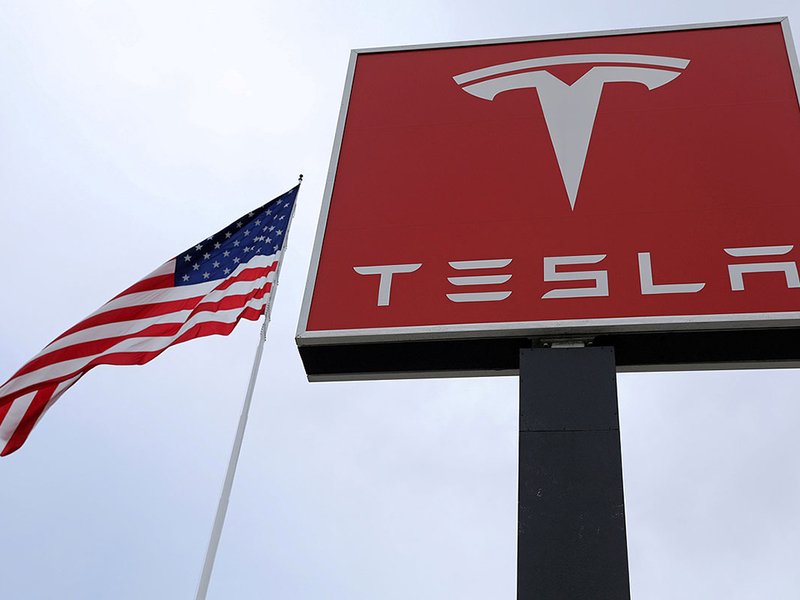
Tesla Inc. generated fourth-quarter net income of $270 million, securing a full-year profit for the first time since its founding in 2003.
The electric vehicle maker said Wednesday it expects to remain consistently profitable moving forward, even as executives suggested the main driver of its recent success — sales of regulatory credits to competitors — could become less of a factor.
On a conference call with analysts, Tesla CFO Zach Kirkhorn noted the $401 million the EV maker made in the fourth quarter from credit sales was higher than anticipated and came from “discreet deals struck over the course of the quarter.”
He reiterated that Tesla is not planning the business around credit sales and does not expect them to be a factor long-term.
The company’s fourth-quarter revenue jumped 46 percent to $10.7 billion, with automotive margins during the period hitting 24 percent.
Tesla delivered 499,647 vehicles in 2020, up 61 percent year over year but just missing CEO Elon Musk’s goal of 500,000.
“This past year was transformative for Tesla,” the automaker said in a statement Wednesday. “Despite unforeseen global challenges, we outpaced many trends seen elsewhere in the industry as we significantly increased volumes, profitability and cash generation.”
For the full year, Tesla posted net income of $721 million and an automotive gross margin of 25.6 percent. It predicted at least 50 percent year-over-year growth in vehicle deliveries moving forward and suggested that rate would be higher in 2021, although Musk noted on the earnings call the company “didn’t want to commit to that.”
Operating margin will “continue to grow over time,” Tesla said.
Tesla shares fell 5 percent percent to $820.40 in after-hours trading.
The automaker is on track to open two new factories in 2021 in Texas and Germany. The Texas plant will produce the company’s Cybertruck pickup and other models.
Musk said that if Tesla was “lucky,” it would be able to deliver a few Cybertrucks before the end of 2021, but he expects volume production won’t start until 2022.
The company also expects to begin production of its semi truck this year. In response to an investor question, Musk said that Tesla is “definitely going to make an electric van at some point,” although he declined to provide a timeframe or say where it might be built.
A number of automakers, including Ford Motor Co. and General Motors, have announced plans to launch electric vans for commercial use in the coming years.
Musk on Wednesday suggested the company’s industry-leading valuation was appropriate given the potential of its Full Self-Driving driver assist technology, a departure from previous assessments where he’s admitted Tesla’s stock price was “too high.”
In fact, Musk said Tesla has had “preliminary discussions” with other automakers about licensing Tesla’s Autopilot technology, but said the company had more work to do on the FSD feature, which he is currently beta-testing on public roads with customers.
Musk said he believed the technology will be able to drive better than a human at some point this year. Critics have argued FSD is dangerous and gives drivers a false impression of its capabilities.
Tesla officials also said they would place a renewed focus on service this year, with plans to open an additional 46 services centers in the first half of 2021.